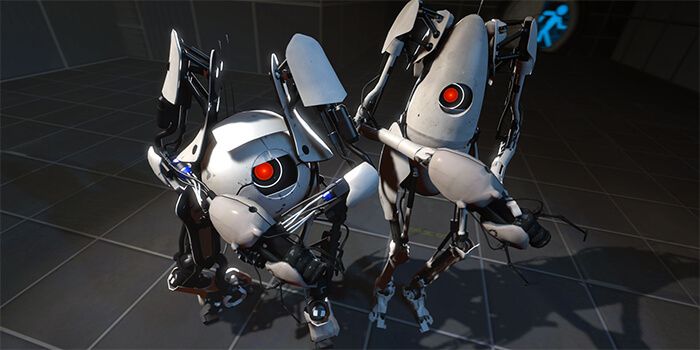Finding the sweet spot for game length is something of a conundrum for developers—too short, and players won't feel they got their money's worth (particularly for AAA prices), too long and interest might peter off unless it's fun, fresh, and engaging from start to finish.
It's the second part that's hard, especially when considering different gaming demographics and tastes. For younger players with time to kill, a game length of over a hundred hours might be perfect. For people with busy jobs and other obligations, the same length may make playing a game—even a highly recommended, well-received one like The Witcher 3—an intimidating feat.
Game length isn't just about pure time investment; it's about spreading worthwhile content out and structuring the game to suit the story (assuming, of course, that we're talking about a story-based game) rather than setting a length ahead of time and packing the game with tedious sidequests, collections to complete, and a huge, open setting with nothing to fill it.
Short Game Length Can Still Be a Powerful Experience
Game length is very important to players who feel that the $60 price point should be reflective of the time it takes to beat a game. A game like Portal—at the time of its release an unknown, experimental game from a small publisher—would never have flown for $60, but its inclusion in the Orange Box meant that people were not only willing to play it, but found it an excellent experience despite having a length of three to six hours for a standard playthrough.
Portal 2, on the other hand, was a little different. The game was around $55 at release, and, on average, it takes players under ten hours to beat the main story. While the game received rave reviews, its length was a point of contention—why shell out so much money for such a short experience?
On the other hand, Portal 2 was superior in many ways to its predecessor, with an elegantly crafted narrative, moments of both hilarity and sadness, and game mechanics that were fresh and exciting. Is a short main story (ignoring the multiplayer, achievements, and replay value) where you're having an excellent time for eight hours really an inferior experience to a 60+ hour game?
Long Game Length Might Mean Lots of Fluff, Little Substance
Obviously, that depends on the game. While Dragon Age: Inquisition deservedly received a lot of praise for its story and improvements over earlier games, it was also riddled with pointless sidequests, real-world timers, and crafting grinds.
Breezing through the game, ignoring sidequests and other distractions, the game length was around 35 hours. Still a significant investment, and one many gamers are satisfied to pay $60 for, but with complete playthroughs taking around a hundred hours things become a little more complicated.
How much is too much? In RPGs, most players want immersion and story, which for some people directly correlates to game length—the more hours you spend in a fictional world, the more likely you are to be immersed in it.
But the downside of this is developers trying to pad game length to a level that's "worth it" and instead filling it with meaningless distractions from the main story. For instance, when games mark minimaps with items to be collected, completionists feel obligated to pick them up whether they actually enjoy the experience of cleaning up a map or not. Sure, they could just stop, but those items are there to provide engagement, despite not actually being all that fun to engage with.
Streamlining Single-Player Game Length for Multiplayer Expansion
Some games take an alternate approach, streamlining the story and padding out game time with addictive multiplayer. This is the approach that the Call of Duty series uses—players can learn the basic controls in the relatively short single player campaign (Call of Duty: Black Ops clocks in at just around seven hours) and sink hundreds of hours into the competitive multiplayer.
The downside of this is that just about everybody who enjoys the Call of Duty series feels that way for the multiplayer, not the story. While the series can have moving, impactful moments, the main story is often shallow and forgettable in light of the multiplayer campaign, and certainly in light of other shooters. But that, largely, is what their fans want and are willing to pay for—if you stripped the series of multiplayer, the game length would not be worth the price of entry.
Game Length and Engagement is a Difficult Balancing Act
Ultimately, as with any game-buying decision, whether a game needs a long playtime or a short one is up to the individual player. For some people, the immersion factor and love for the Dragon Age series is enough to make up for the sometimes tedious sidequests that pad out the game time, and for others, a short, tightly woven story is all that it takes for a good time.
Still, there are some things developers can keep in mind when it comes to game length. Longer doesn't necessarily mean higher quality, even if it does mean better value. If game length is important, it should be reflected in the story—a 60-hour game is great, but if it's 40 hours spent talking to different characters about where to find the secret helm of King So-and-So in samey dungeons with enemies whose only variations are color schemes, it might be time to consider revising the plot. And while tacking on additional multiplayer, collectibles, or sidequests might keep people playing longer, it's not a substitute for a good story in an RPG.
With more gamers concerned about where their dollar goes, this is a debate that's likely to stick around for a while as developers and game writers try to find the sweet spot in game length and content.

